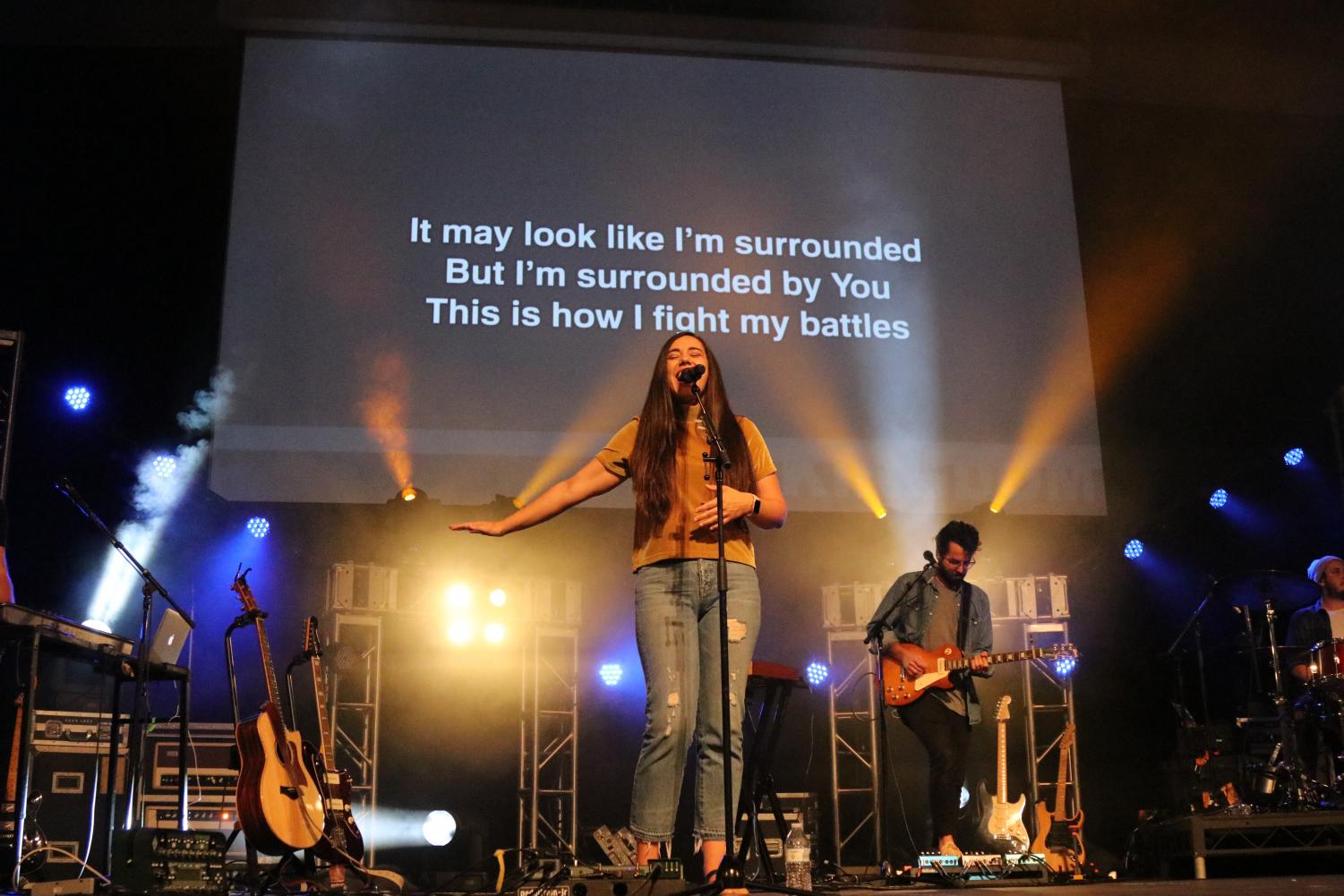This story was originally published in print on Oct. 18, 2018.
Among large-scale church bands like Elevation Worship, Hillsong UNITED and Bethel Music, For All Seasons stands as a growing maverick in the worship music scene. Forged as a Biola undergraduate chapel band, For All Seasons is finding its own way through the Christian music industry, taking paths less traveled while constantly attracting new fans and followers along their journey. Last week, they returned to campus as the featured band of Torrey Conference, bringing their journey home before their next creative season.
FORMED FROM CHAPEL
Composed of singer and guitarist Emily Hamilton, drummer Johnny Hamilton and multi-instrumentalist, Jeff Luckey. For All Seasons never had any aspirations to be a full-time band. After graduating in 2010, they spent their time apart from their jobs and career pursuits to play worship for different churches and youth groups. After impressing enough people, For All Seasons was approached by Hume Lake Christian Camps to lead their worship programming. It was there where they realized they could cultivate something real.
In 2014, their fourth summer at Hume, they released a self-titled album which charted at No. 1 on iTunes’ Christian & Gospel category. This caught the attention of Christian record companies in Nashville and led to the band joining faith-based label Centricity. To this point, they have released three EPs, two full-length albums and have a substantial social media following. Although they have already accomplished some life-long dreams, they have found it is not easy to be a full-time band.
“It is continually a learning process,” Emily said. “Never and still to this point, eight years into doing this full time, we’ve never reached a point where we got it down. There’s a formula now and there’s consistent money coming all the time [but] there’s been multiple times where we’re like, ‘God we really need you to come through right now because if not, I think we’re done.’ But he does, he continually does, including literally right now. We’re walking through that season currently but God continues to be faithful.”
SET APART
For All Seasons does not fully consider itself a worship band nor does the group fully consider itself a Christian pop band. This mixed identity allows them to forge their own genre and present thoughtful music they are passionate about. However, this distinction has proved difficult for them because the Christian music industry wants to label their bands.
“We have songs that are all over the spectrum,” Emily said. “Some of them are really congregational and some of them are pure guitar pop songs. And all in between. We love that because that’s who we are. We’re not just a church band, but we’re also not just a pop band. We have deep roots in leading worship at Biola, leading worship at home, it’s a part of our DNA. So we feel great about what we’re doing, but sometimes it’s interesting to try to help industry people understand what it is that we’re trying to do because they want to put us in a box.”
RAISING A NEW GENERATION OF WORSHIP
Prominent worship bands like Bethel and Elevation have home bases in their own churches. For All Seasons never had a home base like that, rather, they built their base through the youth they encountered at Hume Lake.
“What’s interesting about our band is we’re not part of a church together,” Emily said. “You have your Hillsongs and Mosaics, they’re birthed out of a community of people that has their own identity, their own story, but for us, we have our own individual stories. We’re not really connected to a church, but the group that we’ve been subconsciously writing music for is really the younger generation.”
The heart of their music is to encourage youth to worship well. Too often, our worship to God is contingent on our feelings. We should not be worshipping God because we are on a spiritual high or because we can feel his presence. We should always be worshipping God because his character is always good. This is the message For All Seasons wants to tell.
“Without even realizing it, we started writing songs that spoke to that,” Emily said. “They’re not all intentionally like that, but when we sing songs about the character of God, they all come back to worshipping God for who he is, his power and majesty. When we have songs of surrender, they usually always [sic] will root back to what does it look like to live a life of worship, not just Sunday morning worship or when there’s a band on stage kind of worship.”












